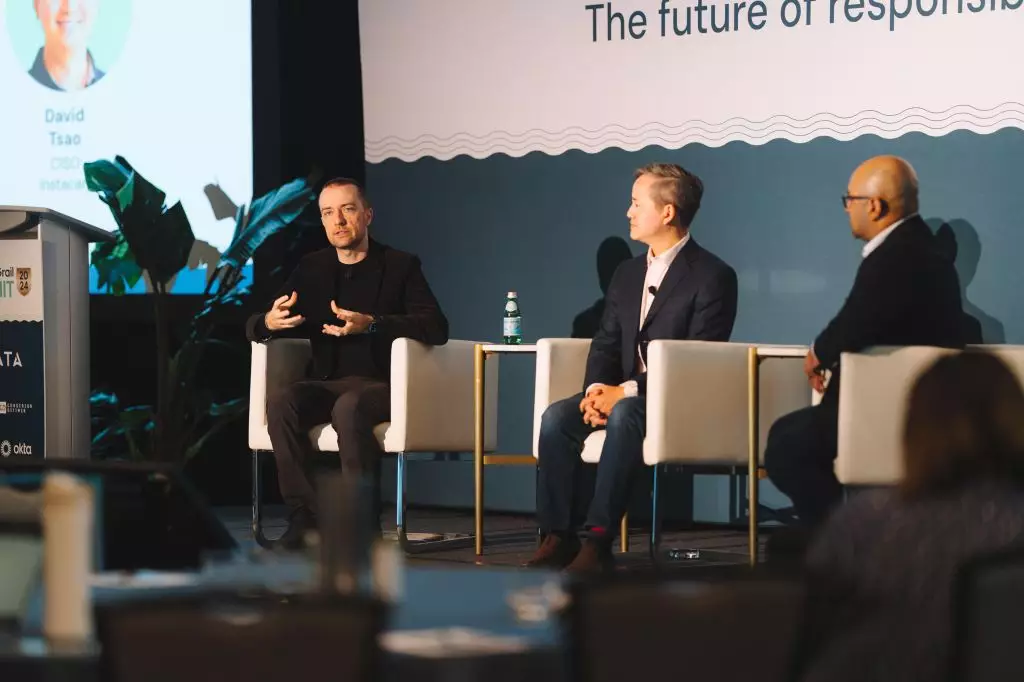The DataGrail Summit 2024 shed light on the alarming risks associated with artificial intelligence, as industry leaders emphasized the urgent need for robust security measures to keep up with the exponential growth of AI capabilities. Dave Zhou, CISO of Instacart, and Jason Clinton, CISO of Anthropic, highlighted the pressing need to stress test AI for a more secure future. The panel discussion, moderated by Michael Nunez, VentureBeat’s editorial director, unveiled the exhilarating potential of AI models alongside the existential threats they pose. Clinton, operating at the forefront of AI development, warned of the relentless acceleration of AI power year over year, emphasizing the need to anticipate the rapidly evolving landscape of AI technologies.
For Dave Zhou at Instacart, the challenges are immediate and daunting. Responsible for safeguarding vast amounts of sensitive customer data, he faces the unpredictable nature of large language models (LLMs) on a daily basis. Zhou underscored the security risks posed by AI models with memory being Turing complete, highlighting the potential vulnerabilities that could be exploited with sufficient manipulation. He stressed the real-world consequences of AI-generated content errors, such as eroding consumer trust or even causing harm through hallucinated recipes. The need for proactive security measures in the face of evolving AI capabilities cannot be overstated.
Speakers at the summit emphasized that the rapid deployment of AI technologies has outpaced the development of critical security frameworks, posing significant risks to organizations. Both Clinton and Zhou advocated for companies to invest as heavily in AI safety systems as they do in AI technologies themselves. Zhou urged organizations to strike a balance in their investments, cautioning against the potential disasters that could arise from neglecting cybersecurity measures. Clinton shared insights from Anthropic’s experiments with neural networks, revealing the complexities of AI behavior and the uncertainties surrounding their internal operations. As AI systems become deeply integrated into critical business processes, the potential for catastrophic failure looms large, underscoring the need for robust cybersecurity protocols.
Clinton painted a picture of the future where AI agents, not just chatbots, could autonomously perform complex tasks, raising concerns about AI-driven decisions with far-reaching consequences. He called on companies to prepare for the future of AI governance and highlighted the need for organizations to stay ahead of the curve in safeguarding against potential AI risks. The warnings echoed throughout the DataGrail Summit panels emphasized the relentless pace of the AI revolution and the critical need for organizations to prioritize cybersecurity measures. As CEOs and board members navigate the rapidly evolving landscape of AI innovation, they must recognize that intelligence without safety is a recipe for disaster. The era of artificial intelligence presents unparalleled opportunities for growth and innovation, but these must be tempered with a keen focus on cybersecurity to ensure a secure and sustainable future.


Leave a Reply